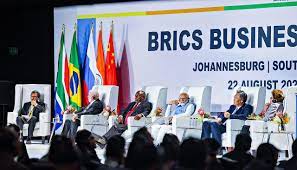
China has prepared a big surprise for the IMF over Sri Lanka
By Rhod Mackenzie
The Chinese Export-Import Bank of China (EXIM) has recently struck a preliminary deal with the Sri Lankan government regarding the debts of this South Asian island. The reports that negotiations were taking place were kept under wraps but have now come to light via a message from the Ministry of Foreign Affairs of the People's Republic of China. The decision to keep the discussions confidential is understandable given that Colombo is currently in talks with the IMF and other creditors. Included in this group of creditors are members of the Paris Club, including Japan and India. Consequently, the announcement of the agreement's signing was an unwelcome surprise for them. Despite Sri Lanka owing China the most, it is not a member of the creditor group and usually conducts bilateral negotiations with the debtor in such situations.
Peter Brewer, the head of the Sri Lanka desk at the IMF, stated that he was aware of the Island nation's government's negotiations with its creditors, but was unaware of the agreement with the Chinese bank that had already been signed. He further emphasised the importance of studying all debtor agreements carefully before signing any debt restructuring agreements. Meanwhile, the Chinese Foreign Ministry did not reveal any details about the agreement between the EXIM Bank and the Sri Lankan authorities, as usual.
Other creditors were also unaware of the talks that Colombo held with the Chinese bank. Although the details piqued everyone's curiosity, one of the negotiators presently in Marrakesh, Morocco, stated that the China deal would not impact their determination to achieve a favourable outcome. By the way, the same negotiator, who requested anonymity, stressed that the agreement that the creditors aim to sign will undoubtedly include a clause preventing Colombo from making payments towards its debts to the Chinese bank initially. It is highly probable that the agreement already signed with EXIM will oppose this provision.
China makes up almost 52% of Sri Lanka's outstanding foreign debts. The officials of the island nation aim to promptly sign an agreement with other creditors to ensure the continued delivery of tranches from a three-billion-dollar IMF loan.
The negotiations in Marrakesh involve the Sri Lankan Central Bank's head, Nandalal Weerasinghe, and Finance Minister Shehan Semasinghe, who represent Colombo at the annual meeting of the IMF and the World Bank. The negotiations started this week. Semasinghe has already met with US Deputy Secretary of the Treasury, Robert Kaprot, in Marrakesh to discuss the Fund's credit line and the restructuring of debt process itself.
Another important detail to note is that the announcement of the agreement between EXIM and the Sri Lankan government was made just before the third Belt and Road Forum in Beijing, scheduled for the 17th and 18th of October. It's worth remembering that President Xi Jinping's primary infrastructure project in the West has been criticized as a means of enslaving the countries that participate in the projects
